Only Alternative to Political Violence Is Civil Dialogue, UW Experts Say
Two centers at the Universities of Wisconsin trying to prevent political extremism.
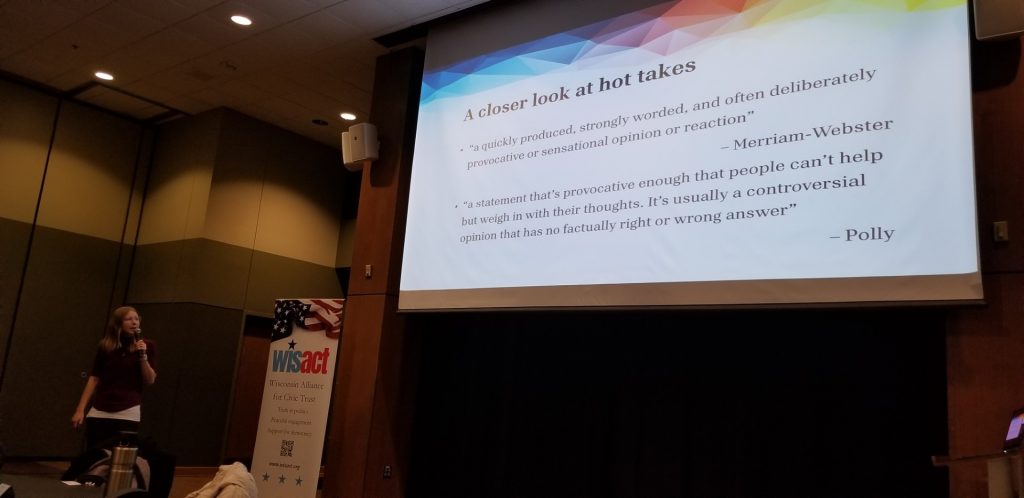
Kate Zurn of Resolution Center, Inc. speaks at a a Wisconsin Alliance for Civic Trust, or WisACT, workshop. WisACT is a cross-partisan network promoting trust in the political system and peaceful political engagement in Wisconsin. Photo courtesy of the University of Wisconsin-Oshkosh
The fatal shooting of conservative activist Charlie Kirk has sparked discussions about political violence in our democratic system and growing divides among Americans. But two centers at the Universities of Wisconsin are trying to create opportunities for healthy political dialogue.
In the aftermath of Kirk’s assassination, many on both sides of the political spectrum have spoken out to condemn acts of political violence. Some critics of Kirk have downplayed or celebrated his death; while some on the right have portrayed political violence as exclusively a problem of the left.
Michael Ford is Director of the Wisconsin Institute for Citizenship and Civil Dialogue at UW. As his organization works to encourage healthy political dialogue on Wisconsin’s college campuses, he worries that people are beginning to see civil discourse as a sign of weakness.
“My real fear is that the next generation of leaders are going to think politics is all about threats of violence and what-about-ism,” Ford said. “And when we get to that point, we’re ceding the space to the most extreme elements of our society.”
Ford and Sam Larson, interim director of the Whitburn Center for Governance and Policy Research at the University of Wisconsin-Oshkosh, joined WPR’s “Wisconsin Today” for a look at how and why we should prioritize civil conversation when political polarization takes over.
This interview has been edited for length and clarity.
Kate Archer Kent: How does a high profile act of violence like Charlie Kirk’s killing impact civil engagement and dialogue in Wisconsin and all over the nation?
Michael Ford: One of the things that we believe in at the Wisconsin Institute for Citizenship and Civil Dialogue, or WICCD, is that free expression is a cornerstone of a functioning democracy, and something that’s a foundational value in our public university system. Any attack that’s politically motivated is an attempt to silence speech. So while it’s obviously a personal tragedy for those involved, it’s really an attack on our entire system.
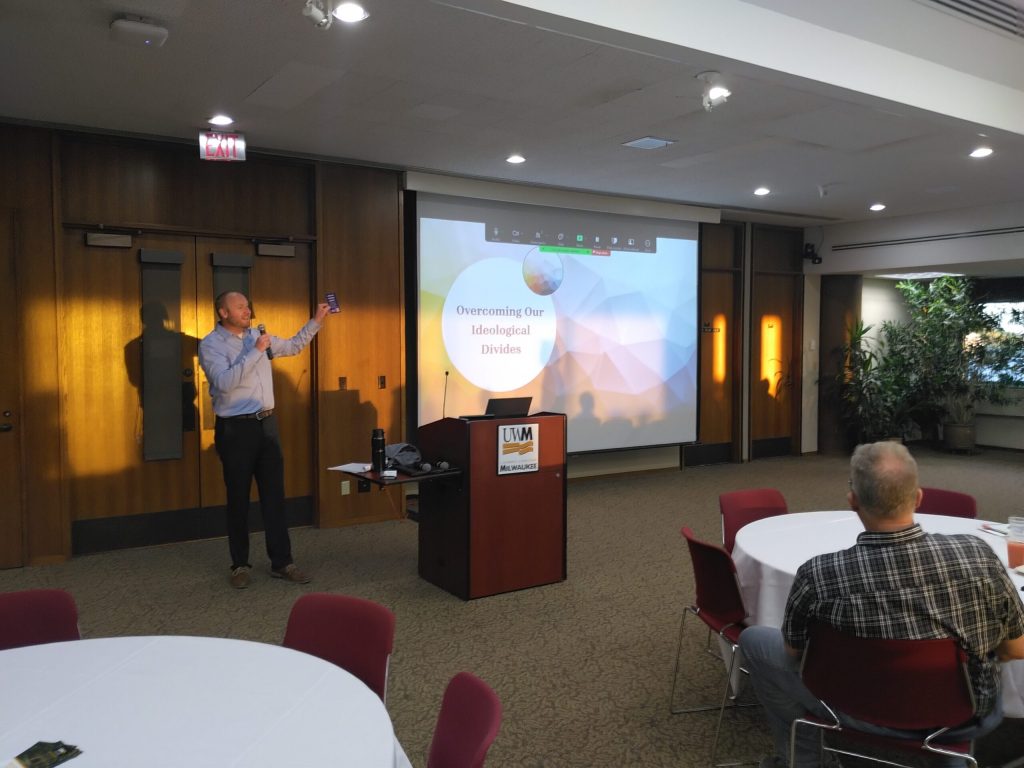
Michael Ford speaks at a de-escalation workshop at the University of Wisconsin-Milwaukee. Photo courtesy University of Wisconsin-Oshkosh
KAK: In the wake of Kirk’s death, President Donald Trump and other politicians on the right have vowed to investigate and dismantle left-leaning nonprofits that they claim — without evidence — fund and promote violence in the U.S. They’re also targeting what they consider hateful speech surrounding the events of Kirk’s death. How might these actions affect the political climate and constructive conversations in America?
When this comes up, I preach and I try to practice civility because it’s more effective and reflects the world that I want to live in. But I and I think all of us need to defend free speech even when it irritates our political friends and foes. Because when we don’t defend protected speech in all cases, we open the door to the First Amendment to be weaponized against anyone and everyone. I think there’s evidence that that could be happening, and that’s not an unexpected occurrence. Most of these high profile challenges to the First Amendment occur after a dramatic and or traumatic event, but it’s important that we resist that, especially at the local level.
KAK: Sam, you run de-escalation workshops through the Whitburn Center in collaboration with the Wisconsin Alliance for Civic Trust. How do you train people to prevent political conversations from escalating in the first place?
Sam Larson: I think that the first thing that we need to think about is: What’s our goal in having this conversation? That goal is to understand, not necessarily debate. Again, we have to practice active listening before we debate topics that are so personal to so many of us, or the people or communities that we love.
Another key piece of this — and it sounds simple — we need to pause and breathe before we respond, especially when we disagree with other folks. Being curious is the third piece, and asking questions. So if you feel triggered by something someone says, respond with a question of “tell me more” or “help me understand what you mean.” These are really practical, internal things that we can do to help keep a conversation in a respectful and productive tone.

A group of people attend a workshop on overcoming idealogical differences at UW-Oshkosh. Photo courtesy UW-Oshkosh.
KAK: So many of these conversations are escalating on social media. Is there a way to civilly engage in those spaces?
MF: We have not found a good way to translate the basics of free expression and civil dialogue to the social media age. So that means our most active public spaces, especially the places where our young people are active, are often working against the goals of pluralism and facilitating the siloing and this collective groupthink.
SL: We know that a lot of research is showing that the social media algorithms often reward or amplify attacks because those are more engaging. Social media engagement leads to increased polarization — the dislike for people on the opposing political side — so we want people to come together face-to-face as much as we can.
MF: And that’s so, so difficult. It’s really hard to have empathy for people who may not have shown it to you. It can also be really difficult depending on your circumstances. I can personally advocate for civility, but I’ve never been subject to discrimination based on my race, religion or who I want to marry. So it’s understandably not as easy for everyone to advocate civility, but we really don’t have any choice. Violence begets violence, and degradation of our political culture leads us to collective ruin, and that’s going to hurt all of us.
KAK: The two of you collaborated on listening sessions around Wisconsin about trust in elections and threats of political violence. What did you hear from leaders around the state?
MF: One thing that stood out from those listening sessions was that almost everyone in the room expected this cycle of political violence to continue. That was so eye opening, because it made me realize that there are no quick fixes here. We’re not going to solve this overnight. This is going to be a generational challenge.
We also found that once you got people on different sides of the political aisle to talk to each other and to really dig into some of the disagreement points, including trust in elections … they tended to back down. They tended to gain trust. So the more opportunities we can create for individuals who might have political differences to interact with one another, listen to one another and start to build those connections, especially outside of a tense political atmosphere, I think we will start to create something we can build upon.
The only alternative to political violence is civil dialogue, Wisconsin experts say was originally published by Wisconsin Public Radio.
If you think stories like this are important, become a member of Urban Milwaukee and help support real, independent journalism. Plus you get some cool added benefits.


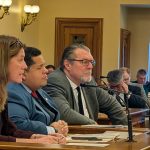
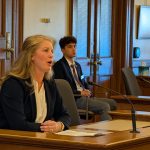
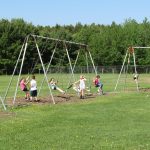














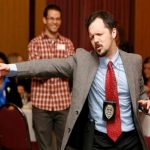

It would help if a certain political party didn’t preach hatred and violence against marginalized groups. For there to be any chance of civic dialogue, we must first, accept and respect the humanity of everyone. For too long, the wealthy elite, who controls our government, have used divisiveness to maintain their dominance. They work to protect a status quo that benefits the rich and powerful. Basic human dignity is foundational to the founding of this country. While we are still working to obtain this ideal, anyone who preaches the opposite is in opposition to our founding documents.